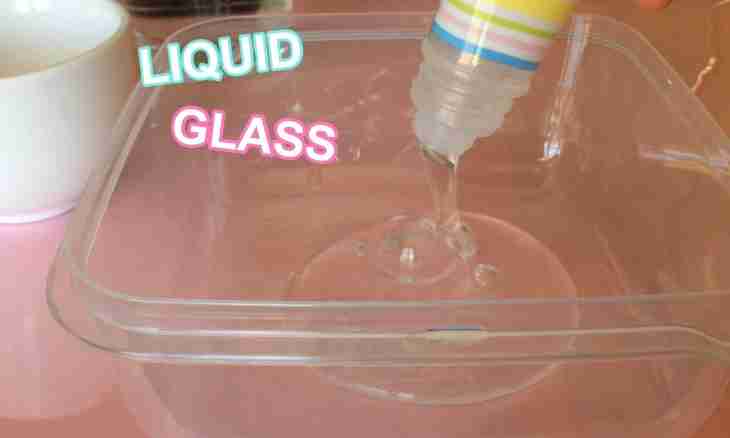Liquid glass is nothing but water solution of silicate of sodium. Liquid glass found broad application in many fields of activity today. Thanks to the of the fire and to explosion-proof properties, use liquid glass practically in all fields of the industry. Liquid glass is especially spread in construction. Here it is used as impregnations and additives. On the basis of liquid glass do mixes for receiving plaster and hard putty. Availability of this material in these mixes gives to the processed element anticorrosive properties and protects from influence of high temperature. Besides, liquid glass is used for a waterproofing of basements, overlappings and wells.
Instruction
1. To make liquid glass, process in the autoclave siliceous raw materials by means of the concentrated sodium hydroxide solution. Besides, liquid glass can be received in a different way: alloy soda with quartz sand, and you receive irreplaceable material for various requirements.
2. Also other method production of liquid glass is also known. For this purpose dissolve siliceous raw materials in alkali solution with a normal atmospheric pressure and temperature which is equal to temperature of boiling of the used alkali solution.
3. If you are somehow connected with chemical industry, use liquid glass in the course of production of silicate of lead, silica gel or the metalsilikat of sodium. Add liquid glass to cement mortar, and you considerably will increase its durability and improve insulating qualities. If coloring of rooms which will be visited massively by people is necessary to you, use for this purpose the nonflammable silicate paints made on a basis of liquid glass. Liquid glass is also rather widely used in the course of production of all-purpose adhesive thanks to the binding properties. It well fastens glass, paper, metal or a tree. Apply liquid glass to production of silicate office glue.
4. Besides, actively use liquid glass by production various washing and cleaners. Also it is applied as binding additive or adhesive substance in the course of the textile, paper and soap-producing industry. Foundry production uses liquid glass as floatation reagent, and ferrous metallurgy uses it as binding material for production of various forms.
